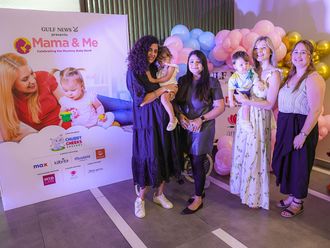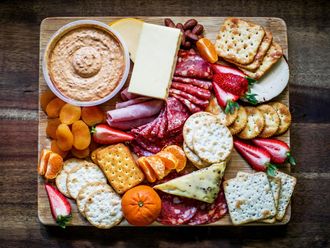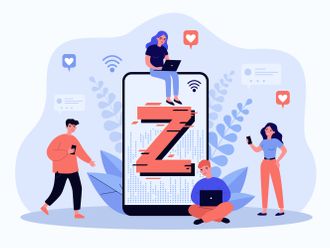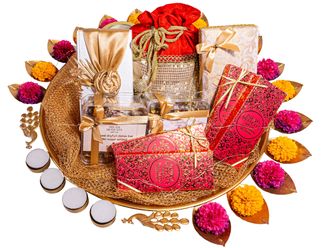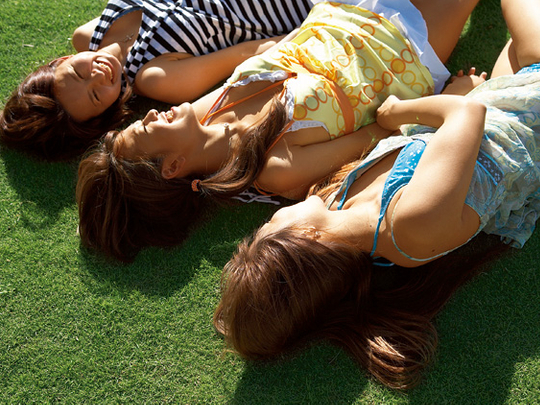
Until recent years, a woman's identity was often based on her relationship to a man. Before she married, she carried her father's name - meaning, this girl is a daughter of this man. Once she was married, she took her husband's name - meaning, this woman belongs to this man's family. Wo-man. Fe-male. Mr and Mrs. Even the word ‘lady' crept out of the word ‘lord' a millennium ago. If you take the masculine part away, all you're left with is an adjunct. A prefix. A meaningless couple of letters that don't amount to much... What a depressing metaphor for females.
Fast forward to 2012. The percentage of 30-something single females has doubled in three decades. And, for many, being single is a choice rather than a cruel twist of fate. Better education for girls has led to more equality in the workplace and therefore financial independence. Contraception has meant freedom from being a slave to biology. Social acceptance of divorce has allowed women to leave unhappy marriages, while stricter child maintenance laws has meant that, even with kids to feed, women can go it alone. All of these factors have fused to create a new breed of young women - one free of the practical need to be married. What's interesting is that now liberated from male-dependance, many women are opting for a life sans man.
Although there's a lot of research documenting this phenomenon, there's little in the way of theories about why women are increasingly choosing singledom over marriage. Hitting a brick wall, we went direct to the source - we gathered a group of Single Bright Females together, added two psychologists - Dr Saliha Afridi and Dr Tara Wyne, from The LightHouse Arabia (www.lighthousearabia.com) - and spent an evening discussing the topic. Here's what we discovered.
"To commit to a relationship, it has to be a pretty good one"
Single Bright Female (SBF) talk It's not like these women are swotting suitors away by the dozen, but when it comes to relationships, they aren't willing to settle for anything less than happiness. Alison*, 34, has been single for four years. She says, "If it's a choice between being single, or being in an amazing relationship, I'd choose the relationship. But if it's between being single, and being in a less-than-great relationship, I choose being single."
Psych talk Dr Saliha says, "If ‘amazing' means struggle-free, spark-flying romantic perfection, I'm afraid they are seeking something that is not possible. But if it means honest, evolving, imperfect relationships that are rooted in friendship, respect and trust, cultivated through time, struggle, and patience, then ‘amazing' is a good relationship goal to aspire to."
"Who needs a partner when you have such an excellent set of friends?"
SBF talk Many of the women agreed that when you're single, your friends become even more important in your life. Alison says, "I have friends for different things - friends I go out partying with, friends I have a moan to, friends I travel with. If you get into a relationship, where do they fit in?"
Psych talk Dr Saliha says, "A lot of women are getting their emotional needs served by their friends... and in some places, casual sex has played a huge part in that, as women and men can get their physical needs met outside of relationships. As women become financially, emotionally, and socially more independent, men are finding it increasingly difficult to be relevant... especially if a woman has been married, divorced, has a career and children, and is getting her emotional and social needs met by dating and friends."
"We enjoy being single"
SBF talk Undoubtedly there are single women longing for a relationship. But there are others who are settled in their lone she-wolf life - so settled that they aren't willing to compromise it. Lisa*, 28, split up from her boyfriend four months ago. She says, "I'm genuinely enjoying my life right now... I'm wondering if I'd be able to make space for someone else."
Then there's Laura*, 32, who was married to her college sweetheart for more than five years before their relationship ended three years ago. She says, "I'm not saying I wouldn't want a relationship in the future, but the three years that I've been single have been the best of my life." Phoebe*, 31, says she hasn't had a serious relationship since her last one ended six years ago: "At this point, I don't really want to share my life with someone, but I don't mind a date on a Friday night."
Psych talk Dr Tara says, "Often there's the perception that men will intrude on our lives. But if we take away our need for money, security and children, a relationship is just about sharing your experiences. In that sense, a relationship should be seen as a way of gaining."
"We would be interested in relationships if we were meeting the right guys"
SBF talk With this contentment in singledom comes the ability to be selective. Rachel*, 30, has been single for more than two years following a six-year relationship. She says, "I'd like a relationship, but I don't want to force myself into one with someone that I'm not happy with just out of fear of a ticking clock." Jessica* 28, has had a few brief relationships recently following heartbreak six years ago says, "I have certain boxes that need to be ticked - the main one is that I can trust him. But there are lots of other smaller boxes, too."
Psych talk Dr Saliha says, "This is treating relationships like a consumer commodity - you get an iPad and you're happy, but soon, the iPad2 comes out and you feel short-changed with your iPad. As for ticking boxes, it's crucial to take time for introspection... where did these boxes come from? Are they still appropriate? Try to learn about yourself from your previous relationships."
"We are fine about being single - it's other people who have an issue"
SBF talk There seems to be a social stigma about women being single during their ‘child-rearing' years with people expressing pity for a woman's single status with SBFs experiencing comments such as, "Have you found yourself a man yet?" Lisa says, "Definitely there's a stigma. I guess people think you need a relationship in order to be happy. But I know it's not true. I've been both happy and unhappy in, and out, of relationships. It's not the deciding factor."
Psych talk Dr Tara says, "Many people have difficulty accepting that women can truly be happy on their own and often project their own fears of being single onto these women. Being single is too closely aligned with being lonely, and less aligned with being content."
"We're in a much better position in our 30s to choose a relationship that is totally right for us"
SBF talk Most women who are single in their 30s have already had a long-term, serious relationship or even a marriage, which they got into in their early 20s. In the US, many people are calling these relationships ‘starter marriages', in reference to ‘starter homes', meaning they are your first serious relationship, which you quickly outgrow. Divorcee Laura thinks she is much better equipped as a 30-something to embark on a successful relationship than she was in her 20s. "I find the idea of a ‘starter marriage' very interesting and very true. But I don't think this should detract from these marriages though... I got married at 21 with every intention of it being forever. I valued that and I tried to make it work. Unfortunately, I worshipped my ex and allowed myself to be moulded by him. Now, though, I know who I am - and hopefully I won't let that person disappear beneath a relationship again. I just want to find someone who will allow me to be me."
Psych talk Dr Saliha says, "We are in a transition period. In the past, women were expected to manage the marriage, make the sacrifices and be patient. It's different now. Women in their 30s today are not like their mothers - they work and consider themselves to be equal partners in a relationship. Many men in their 30s don't know how to deal with these women, as their knowledge of women is based on their own mothers. The pressures are high because neither sex has a mental model to work from and they have to learn as they grow. The next generation will have a much more elaborate set of relationship templates."
Where do they go from here?
Like a species evolving to suit their changing habitat, these women's expectations about men and relationships has shifted in line with the dramatic changes in their social environment. Their self-esteem is not dictated by their relationship status, but they're not burning bras and campaigning for men to be shipped off to Mars either.
They like men just as much as the next woman, but they value a lot of different people in their lives. They believe that having a long-term happy relationship is preferable: but it is not the foundation of their emotional wellbeing. They know that times have changed. They get it. And they're absolutely fine with it.
Now, these Single Bright Females just have to sit tight and wait for the rest of society to catch up and understand that, with this grand independence comes a more frivolous attitude towards the opposite sex - an attitude that is arguably man-like. Some people are calling these women free-males, but considering their male attitude to life, perhaps these women should not so much be striving for an identity that frees them from reference to males, but for one that recognises their new-found equality. They're not feminists. And they're not bitter. And they're not hobbling through life looking for someone to make them stable. They're just like men, but they're women - perhaps they're she-males?
Phoebe sums it up beautifully. She says, "It's not that I don't want to share my life with someone. It's just that I have plenty of other things to enjoy too, so it's just not a priority. Having said that, I am aware that I am not getting any younger, and I definitely do want to have kids at some point. I don't know... maybe women these days just want it all. And why shouldn't they? It's certainly been a long time coming."
* Names have been changed.
The Dubai factor
Norma Cairns, counselling psychologist at LifeWorks Counselling and Development Dubai (www.lifeworksdubai.com), says that the rise in single women is largely to do with changes in our global society - and that this is especially true in Dubai.
"In my opinion, over the past ten to 15 years, society has been shifting towards an individualistic nature - with a focus on the self. In order to achieve career goals, self-reliant behaviours are formed and encouraged. Contrastingly, engaging in a loving relationship means compromise. As such, high-achieving women may look at other ways of getting their emotional needs met, such as retail therapy, while casual relationships - a behaviour historically more typical of males - may be the substitute for the intimacy of love and commitment.
"For people here, you have the Dubai factor - a large number of people in their 30s, all living abroad, in a sunny, holiday-like atmosphere - it's like a playing field. The changes in gender roles with many girls outperforming boys at school and college, women having successful careers and financial independence can make some men feel insecure. If a man is sufficiently feminist in the sense that he is fully supportive of equality, he will be better able to cope with strong females. My advice for people in Dubai is to be mindful and to aim for healthy, loving relationships based on mutual trust and respect."
Single stats
- 70% of Americans think that the institution of marriage is weaker than it was 20 years ago
- 4 million unmarried 30-something females are in the US. This is more than married female ones
- 20% of British women experience the breakdown of a co-habiting relationship by the time they reach 30
- 51% of women in Britain under the age of 50 who are not married. This figure has more than doubled in 30 years


